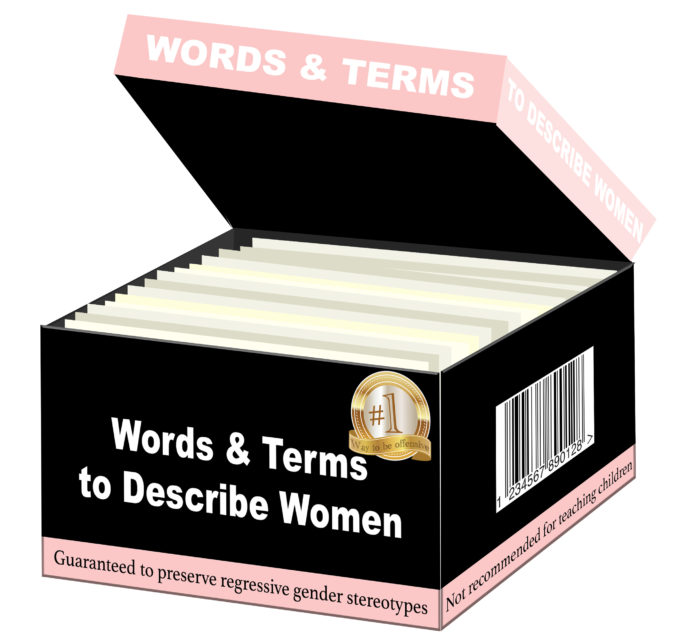Sticks and stones may break bones, but words have broad-reaching societal impact.
According to a study titled “Gender Bias and Sexism in Language,” published by Oxford University Press, “language is one of the most powerful means through which sexism and gender discrimination are perpetrated and reproduced.”
Along with degrading idioms such as “man-up” or “that isn’t very ladylike,” there are other subtleties in language that work to reinforce gender stereotypes, such as the use of masculine generics. Male generics take words meant to include women, but only verbally represent men.
Examples of a male generic is “mankind” versus “humankind.” Through using gender-fair language, we have the ability to perpetuate a more inclusive society. We should put our mouth where our values are, and be intentional to use phrases and words that contribute to inclusive dialogue.
We should actively engage in gender-fair language to encourage a fair view of ourselves and our peers.
While some may believe that the use of male generics has a neutral effect, research shows that such terms create a sense of male prominence and female absence. It sets the idea that what is male is the universal and what is female refers to the particular. Frontiers in Psychology, the largest research journal in the field, conducted a study on the implementation of gender-fair language and reported “that masculine forms are used to represent all human beings is in accord with the traditional gender hierarchy, which grants men more power and higher social status than women.”
A 2007 study evaluated 111 countries to determine how the emphasis on gender in languages was correlated with societal gender equality. Their research found that the use of masculine generics evoked mental male biases, evident in people thinking of more male than female examples for pronouns to complete sentences, stories about fictitious people and estimating ratios of women to men in certain roles.
A separate study conducted in 2013 found that occupations described using male generic forms (such as policeman or chairman), young girls perceived women to be less successful in those jobs and became personally less interested in them as well. A follow-up study in 2015 further displayed the correlations between gendered language in career outlook.
According to Frontiers in Psychology, there are three types of languages: grammatical gender languages (i.e. French, German, Czech), natural gender languages (i.e. English, Swedish), and genderless languages (i.e. Finnish, Turkish). While grammatical gender languages have gendered nouns, natural gendered languages have non-gendered nouns.
We should embrace the freedom that English allows and use it to adopt broader uses of gender-fair language. The Atlantic reported that French language, one that is grammatically gendered, released a school textbook in fall 2017 that promoted a gender-neutral version of French. Suggestions to remedy the language include “creating feminine version of all professional nouns and/or using neutral nouns whenever possible,” as well as using a gender-neutral pronoun, The Atlantic reported. The French publishing house Hatier designed its textbook based on the 2015 recommendations from the High Council for Gender Equality, an institution decreed by the prime minister to promote gender equality in France.
Even languages that are more restricted in their fundamental form are making changes to promote inclusivity.
The transition toward our naturally gendered idioms and terms to a more gender-fair language happens institutionally first. Through creating formal regulations and requirements in scholarly publications, Frontiers in Psychology finds that “GFL is more frequent and more accepted.”
In the ‘70s, prominent professional organizations such as The American Psychological Association and McGraw-Hill Book Company, require neutralization in publication guidelines. The 2017 AP Stylebook was revised to include “they” as a singular gender neutral pronoun.
Frontiers in Psychology explains that “publication guidelines of this kind have been effective, because authors need to follow the rules if they want to see their manuscripts published.”
We should push for more organizations to adopt gender-fair language requirements. Among the people we have immediate influence over, we can enforce our own expectations.
With longer use and increased encounters with gender-fair language, people will be more accepted and habitual, according to Frontiers in Psychology.
It’s time to “human-up” and start using gender-fair language.





